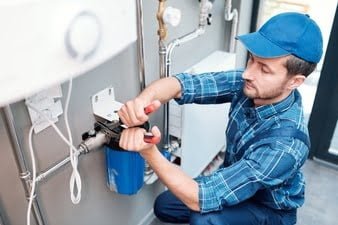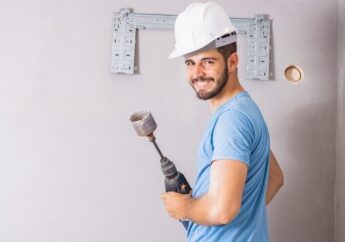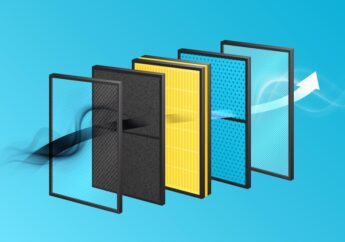How to Prevent Frozen Pipes From Bursting
by Abdul Aziz Mondal Real Estate Published on: 02 June 2021 Last Updated on: 27 December 2024
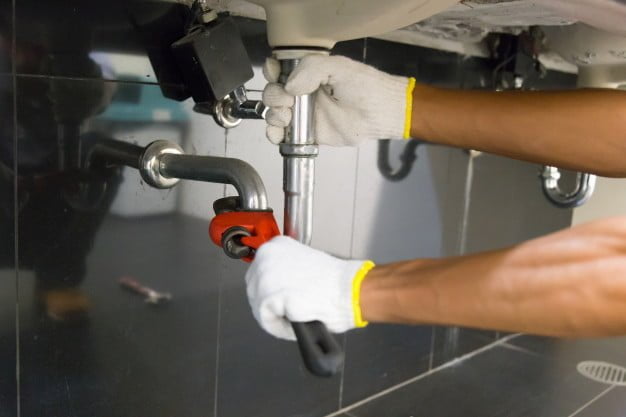
Water that is found in underlying pipes will begin to expand due to added pressure. Initially, nothing serious will happen, but eventually, small cracks will start to form at the joints. Tiny leaks will start to form as well, and, if left untreated, the frozen pipes will finally burst, causing massive damage and possible flooding to your home.
In fact, according to the Insurance Institute for Business and Home Safety, the water damage that is caused by burst pipes can cost homeowners several thousand dollars at the minimum. If you want to prevent your frozen pipes from bursting, then please follow this guide.
You need to understand as a homeowner that a frozen pipe, especially in winter conditions can result in great hardship for your family. By looking for an established business that offers frozen pipe repair near me, you will be able to overcome this problem easily. You need to look at the experience of the professionals, understand the costs required and allow them to get on with their job.
Tips to Unfreeze Your Frozen Pipes:
There are many tips that should be followed to prevent frozen pipes from bursting, and these are discussed below in detail.
i). Determine the location:
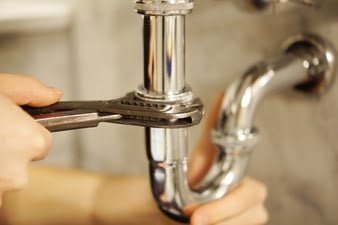
First and foremost, you will need to determine the location of the pipe that is currently frozen. Open every faucet in your home. If you notice a trickle of water, then you are likely dealing with a frozen pipe. The frozen pipe should be situated somewhere between the water source and your faucet.
Begin at the plumbing that is located closest to the faucet, and then proceed to follow the line away from it. Use your hands to feel around every 2 or 3 feet in order to find the coldest pipes. The coldest pipes will usually be those that are currently frozen.
ii). Limit the amount of water:
You should also limit the amount of water that will pour out. Shut off the water supply and then wait for the icy blockage to thaw. Eventually, some liquid that may have accumulated behind the frozen pipe may start to come out. This may or may not happen, but just to be on the safe side, prepare for a worst-case scenario.
Have a mop, towel, and bucket handy after you have turned the water supply valve off, as icy cold water may begin to gush out from your thawed pipes.
iii). Open faucet:
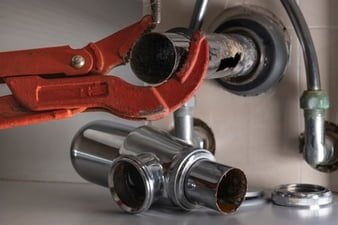
Opening the faucet may help as well. Any water that still remains should be drained. Simply open all of your tub, shower, and sink faucets in your home. Then, flush each of your toilets once.
Wrapping hot towels around your frozen pipes may also help them unfreeze. Insulating your pipes may be able to prevent pipe leakage and crack issues in the future.
iv). Install heat tape:
Speak to an electrician or plumber in order to determine if you require additional insulation in order to prevent your pipes from freezing during the winter. For instance, they may suggest that you install some heat tape on your pipes. Heat tape is a state-of-the-art product that is designed to warm pipes during the frigid winter months.
You can install the heat tape yourself if you are handy, or you can ask your plumber to do it for you. Your plumber will also provide you with additional tips that you can use in order to prevent your pipes from freezing. Burst pipes can cause thousands of dollars worth of damage, so it is best to take the necessary precautions.
What to Do When Your Pipes Burst?
In the event that your pipes do burst, you should shut off your water supply valve as soon as possible. You can use a meter key to shut it off or simply turn it clockwise manually.
Next, disconnect the electrical panel. You will need to turn off your electrical system before you start to actually clean up the water. The panels should be located in your laundry room, closet, garage, basement, or outside the home. The path to the breaker box may be blocked off by massive flooding. If this situation applies to you, then please call your local electrician immediately.
Next, you will need to seek out professional help. A licensed and bonded plumber will be able to fix the issue quickly in order to reduce the amount of property damage that may result from burst pipes.
You can also relieve some pressure while you wait for the plumber to arrive by turning on a sink faucet. The remaining water should be drained after you have turned it on, which will prevent further damage from occurring.
Final Tips:
If it is freezing cold outside, then you should keep a few of your faucets running slowly. By doing so, the line will be less likely to freeze over time. Keep your thermostats on as well while you are away from your home during the winter. The temperature should not drop below 0 degrees Celsius in any part of your property where water lines are situated.
The pipes in your cabinet may also be vulnerable, so opening doors in the house may allow heat to reach your cabinet pipes. Most people ignore the pipes in their walls. You can prevent severe damage to your wall pipes by sealing up any cracks and holes in your walls as soon as you notice them. Therefore, these are the best tips to prevent frozen pipes from bursting.
Read Also:


























































































